|
Books. We love to shop for them, hold them, display them, talk about them, and occasionally even read them – but what lies in their future? I can’t help but feel that fiction and nonfiction will take two distinct paths. Today, I will be mostly exploring the evolution of nonfiction.
The limits of books.
Thinking about the failings of books, I come up with this list:
- The information contained in them cannot be integrated into my work process. When I need a piece of information, I cannot easily access it from books.
- The information contained in them cannot be integrated with each other. Each book is an individual that acts as though the others don’t exist.
- They are not easily searchable. I have to remember what books I own, and then do a laborious manual search within the table of contents or index of each.
- As a group, they are stationary. I can’t bring all my books with me, or easily look at all of your books, unless I came over to your house. If you do invite me over, I promise to bring munchkins.
- Books are not updatable. Obsolete information is mixed into current information. This can happen within your collection or within a book itself. Sure new editions can be printed, but how many books do you buy over and over again?
- You purchase knowledge piecemeal, as opposed to buying access to a vast treasure of knowledge.
- Book discovery is time consuming. I love bookstores, but it is more of an activity to go there, than a part of any useful process. To browse the shelves, judge books by their covers, read the back cover, flip through the pages, and continue this process through all of the books next to it – not even trying on shoes takes this long. Amazon and others online have revolutionized this, but it really isn’t enough.
Now, there is an obvious list of things I love about books, but quite frankly, that list does not outweigh the items above. Usefulness is my main objective with nonfiction books.
The future of books.
So how will books change? How will they evolve in the way that the rest of the world’s information, and information gathering processes, have evolved via networks, databases, and the web? Here’s a hint: microfiche is not the answer.
Some possibilities:
- Google feels that they have the answer, in Google Book Search. Basically, Google has partnered with some of the best libraries to scan their books, page by page, digitize them, and then create a search functionality around it. Read more on Google Book Search from the New Yorker.
- Sony thinks they have the answer with Sony Reader. Of course, there are many others who are playing with the idea of digital books, such as downloadable PDF’s.
A book by any other name would smell as…
So what is a book? To me, these are the purposes of books:
- They educate us.
- They communicate who we are.
- They inspire us.
And while I have spent quite a bit of time in my life learning about bookbinding, it is not the paper or binding that accomplishes any of these things. They were simply the most efficient delivery mechanisms available to us at the time. Has digital evolved enough for extended screen reading? Perhaps not. But when I think about the future of books, I keep those three points in mind; their purpose, not their structure.
The rebirth of libraries.
I am a library nerd. I love the feel of libraries, and the fact that everything in them is free. Libraries are evolving in the digital world, and becoming more useful than ever before. Internet access, DVD’s, events & activities, and plenty of other services continue to make them the lifeblood of their communities.
If you remove books from libraries – if you somehow digitize them and hide them in the basement, libraries would not change all that much. They are a source of knowledge, community, and inspiration. Wired just published a great article on how librarians and libraries are making the transition to a Web 2.0 universe.
B2B publishing.
Should we look at B2B publishing in the same way? I subscribe to many magazines, read two newspapers each day, and sometimes hug my copy of Harry Potter to get to sleep at night. But will paper become a less efficient and less useful way to deliver information?
What are the opportunities now afforded to the B2B publishing world to communicate to, educate and inspire their industries regardless of media that is used?
|
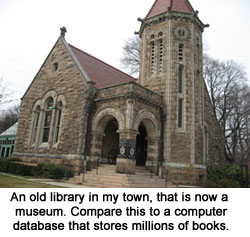
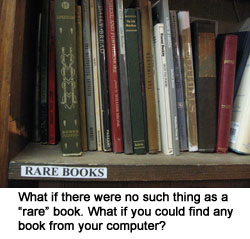
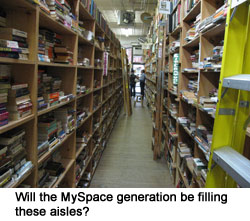
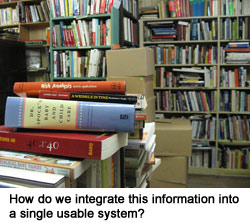
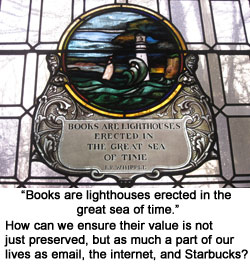
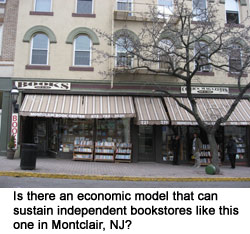
|
|






